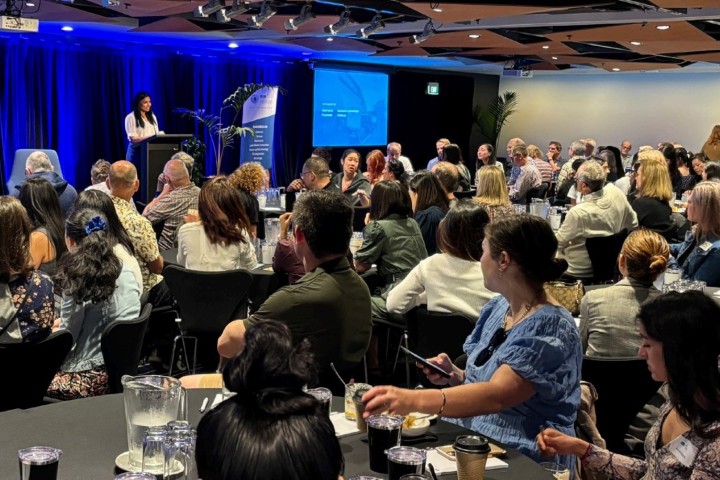Eye check watered down, sidelined
The government appears to have cut plans for the much-anticipated free eye health exam for seniors, opting instead for a very basic, age-related macular degeneration (AMD) check by GP nurses as part of its broader commitment to a free annual health assessment for SuperGold cardholders. But such a basic eye check for AMD alone could actually be detrimental to older people’s vision, warn industry leaders, disappointed by the development and the government’s complete lack of consultation and understanding about eye health.
“There’s no question in my mind that this could do more harm than good,” said Professor Steven Dakin, head of the School of Optometry and Vision Science at Auckland University and acting chair of industry group Eye Health Aotearoa (EHA). “You run the risk of vulnerable patients going to have a health check and being given the all-clear for AMD, which then disincentivises them to go and have a proper eye examination, which would screen for a whole range of other eye conditions. That’s the big worry.”

Prof Steven Dakin
According to US and Australian data, about one person in every three has some form of vision-reducing eye disease by age 65, yet more than 35% of people don’t have regular eye checks, including one-in-10 who’ve never had an eye test. The most common causes of vision loss among the elderly are AMD, glaucoma, cataract and diabetic retinopathy.
Well-known glaucoma specialist Professor Helen Danesh-Meyer, chair of Glaucoma New Zealand (GNZ), said if the government goes ahead with this, it’s a complete wasted opportunity. “GNZ has always advocated that the most appropriate place for screening is optometrists. Optometrists are highly skilled at identifying the whole spectrum of eye diseases, especially in New Zealand. The key point about glaucoma, which this policy seems to have lost sight of, is that glaucoma can be diagnosed in the asymptomatic stage, so these glaucoma suspects will gain the most from a screening check.”


Prof Helen Danesh-Meyer
It is also important when implementing a screening programme to screen for conditions where there are established treatment pathways for the majority of patients, said Prof Danesh-Meyer. A point echoed by Prof Dakin. “This type of check won’t pick up other eye conditions and doesn’t address the care pathway in any way, and you can’t do one without the other.”
John Mulka, chief executive of Blind Low Vision New Zealand, agrees eye checks should be carried out by optometrists. “We are concerned that decisions on this policy have already been made, without consulting the eye health sector.” Despite repeated offers of assistance since deputy prime minister Winston Peters made the ‘one free eye check’ a condition of the newly formed 2017 coalition-government, EHA and its members have not been consulted about how this could work.


John Mulka
There’s been no consultation with the Royal Australian and New Zealand College of Ophthalmologists (RANZCO) about this, confirmed RANZCO NZ branch chair and Auckland ophthalmologist Dr Peter Hadden. “A free eye test is a good concept. The NZ Branch had assumed the tests would be undertaken by optometrists. Having become aware that screening is now limited to AMD, we would question the value of it. It would be important to understand what intervention would result from a positive AMD test outcome.”


Dr Peter Hadden
Macular Degeneration New Zealand (MDNZ) has had talks with government officials and MPs in both this and the last government about the dire need for funding to help raise awareness to AMD to ensure timely treatment to slow vision loss progression. Due to its persistence two reports - one MDNZ-funded Deloitte one and one government-backed EY one - found the socioeconomic cost of AMD to New Zealand to be a staggering $391 million, not including quality-of-life. But even MDNZ wasn’t consulted about this GP nurse eye check for AMD, said MDNZ general manager Phillippa Pitcher.
The proposal as it currently stands is “bad news” for GoldCard holders, said Pitcher. “No-one is happy. A free eye health test needs to be comprehensive and pick up all age-related eye diseases. After all, the goal is to save loss of vision for our older New Zealanders which in turn saves the country expenses due to co-morbidities, early entry into full-rest home care etc.”
After being contacted by NZ Optics about this watered down eye test proposal and the reaction of EHA and its members, Monique Burrows, the acting deputy director-general of health system improvement and innovation at the Ministry of Health, stressed the details of the initiative had not been finalised. Though not because of a lack of consultation with the industry, but because of the “need to redirect significant resources to the global Covid-19 pandemic response.”
“We recognise the sector’s interest in this initiative and acknowledge the concerns of those who advocate on behalf of their communities,” she said in a statement. “We are committed to engaging with stakeholders before any decisions on its implementation are made.”
The New Zealand Association of Optometrists (NZAO) has had a similar promise made after recently meeting with Dr Martin Chadwick, chief allied health professions officer, and Tracey Martin, the minister for seniors, said NZAO president Rochelle van Eysden. “They have assured us that the NZAO will be consulted in the development of this scheme. Like our members, we have many concerns about this initiative. Once the results of the election are known we may reengage with any relevant MPs.”
Key to effective advocacy is having a comprehensive picture of New Zealand’s eye health, which is why the number one priority for EHA is to conduct the country’s first National Eye Health Survey to inform future planning and funding decisions, said Prof Dakin. “The only way we will affect longer term change is by making politicians recognise that eye health is and should be a priority.”
The free eye examination for seniors must be an evidence-based health policy, agreed Mulka. EHA recommends the exam should be every two years as this is more cost effective and will potentially allow for funding for follow-up examinations, he said.
The lack of understanding and level of disengagement with the eye health sector leading the government to propose this GP nurse check for AMD is worrying, said Prof Dakin. “It seems to indicate a lack of political will in this regard.”























